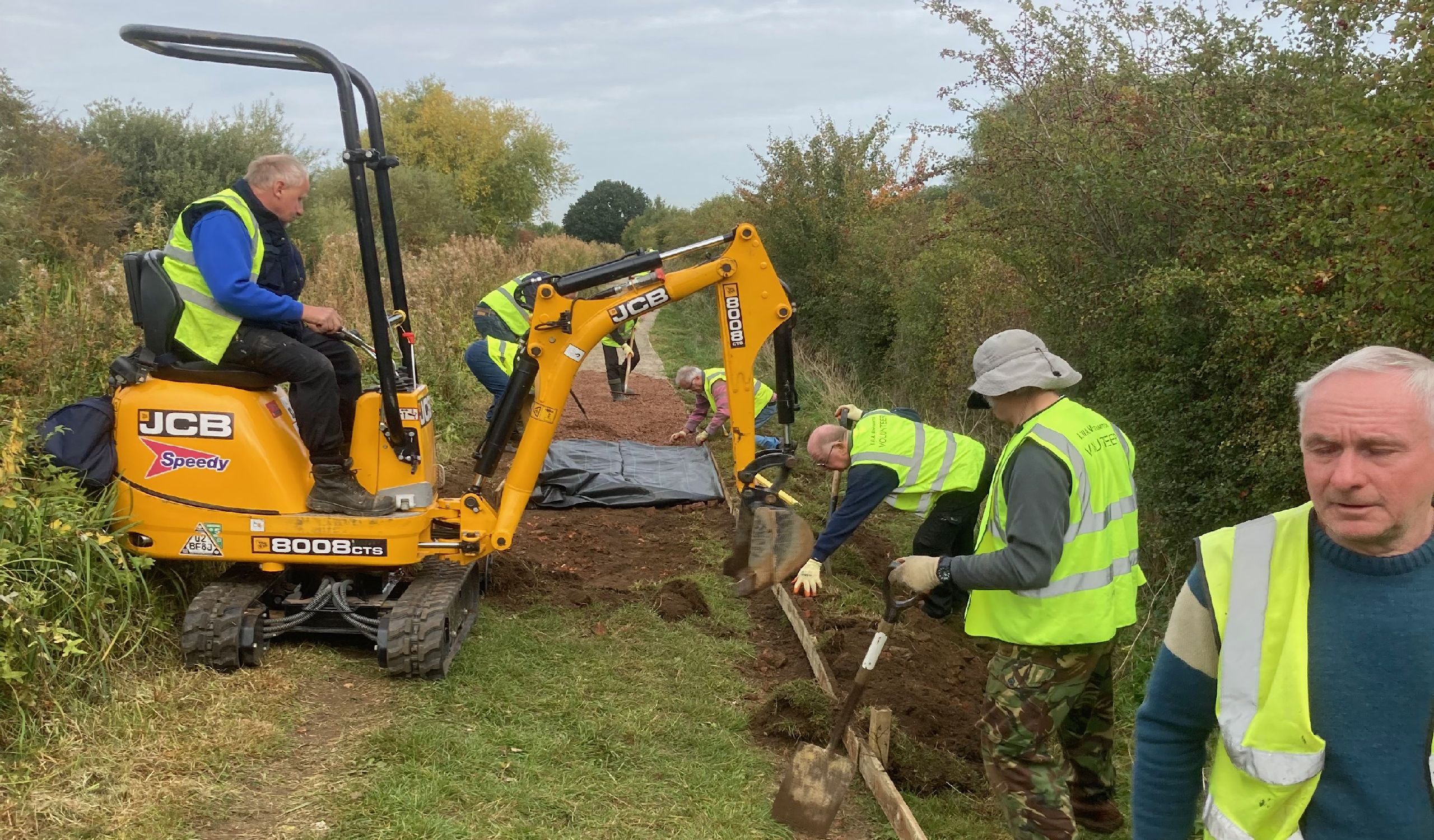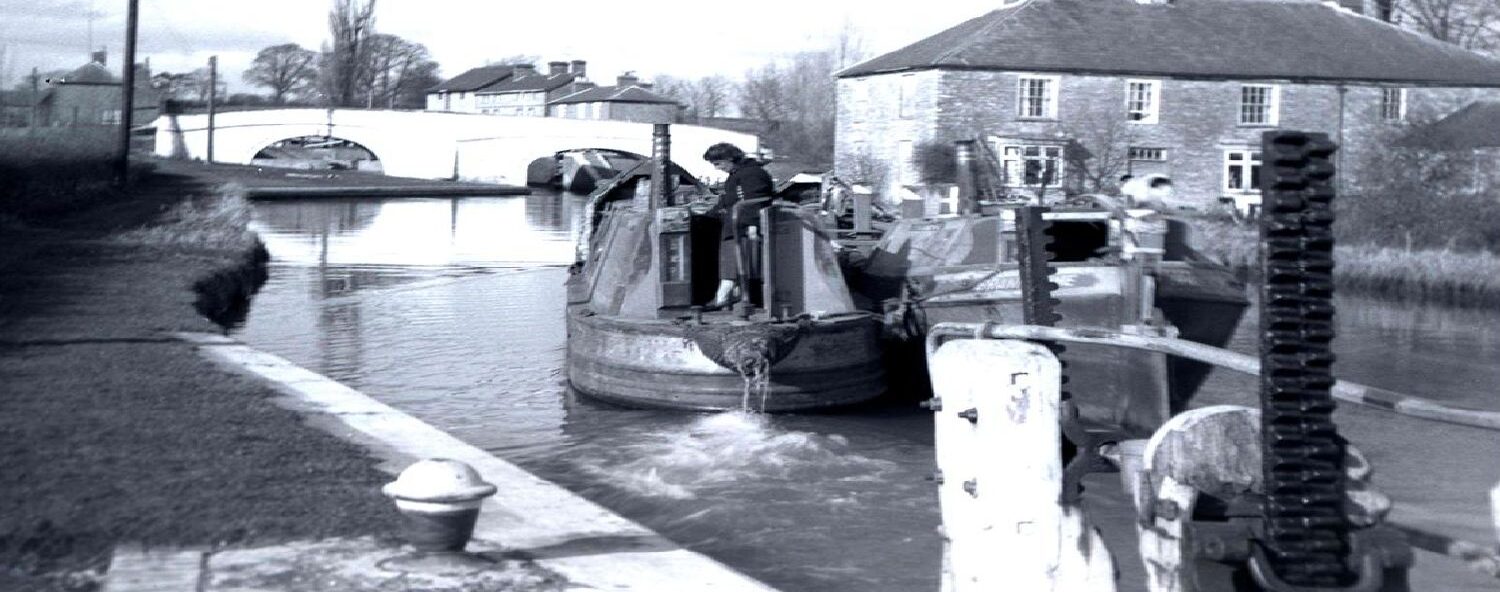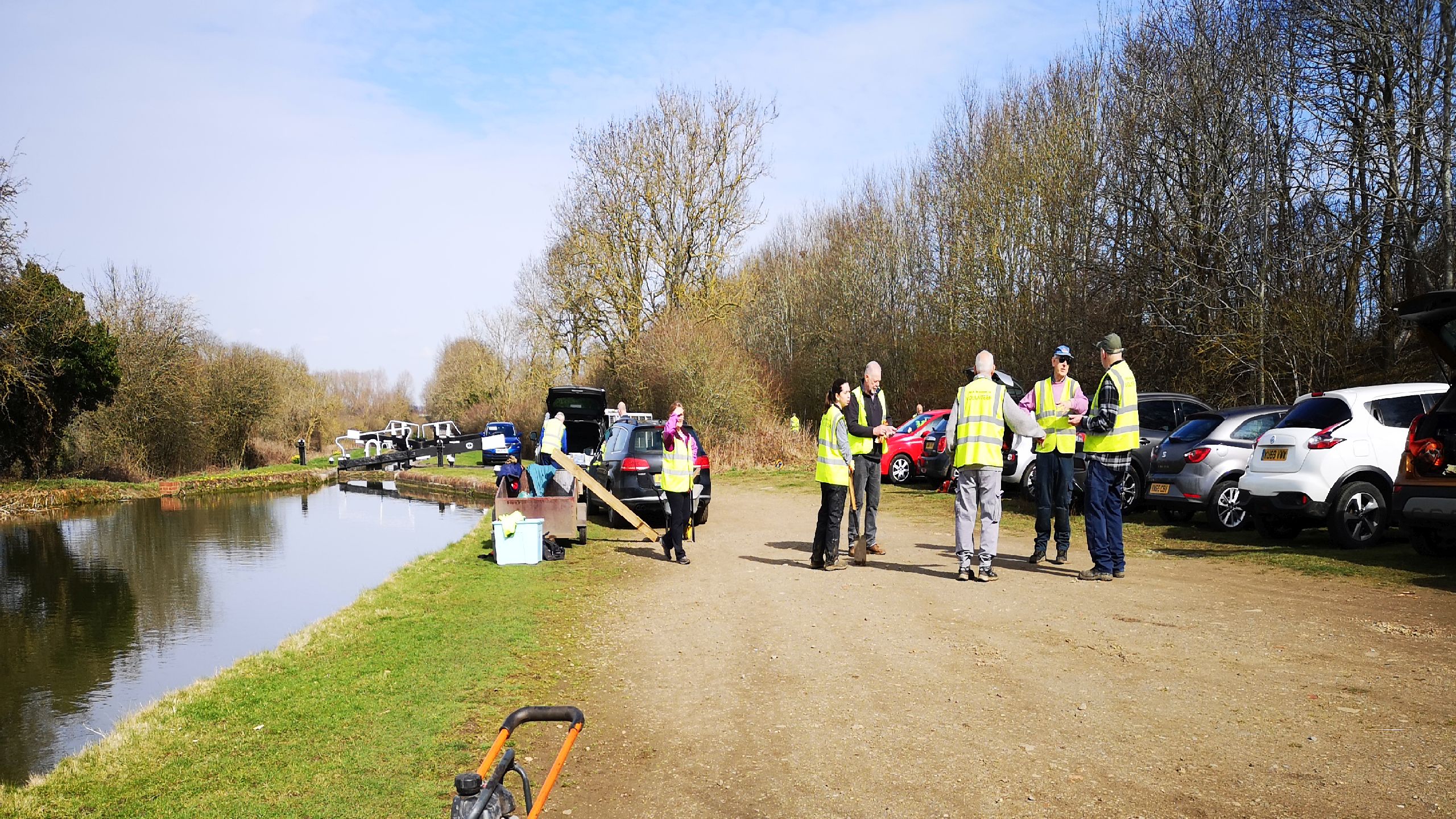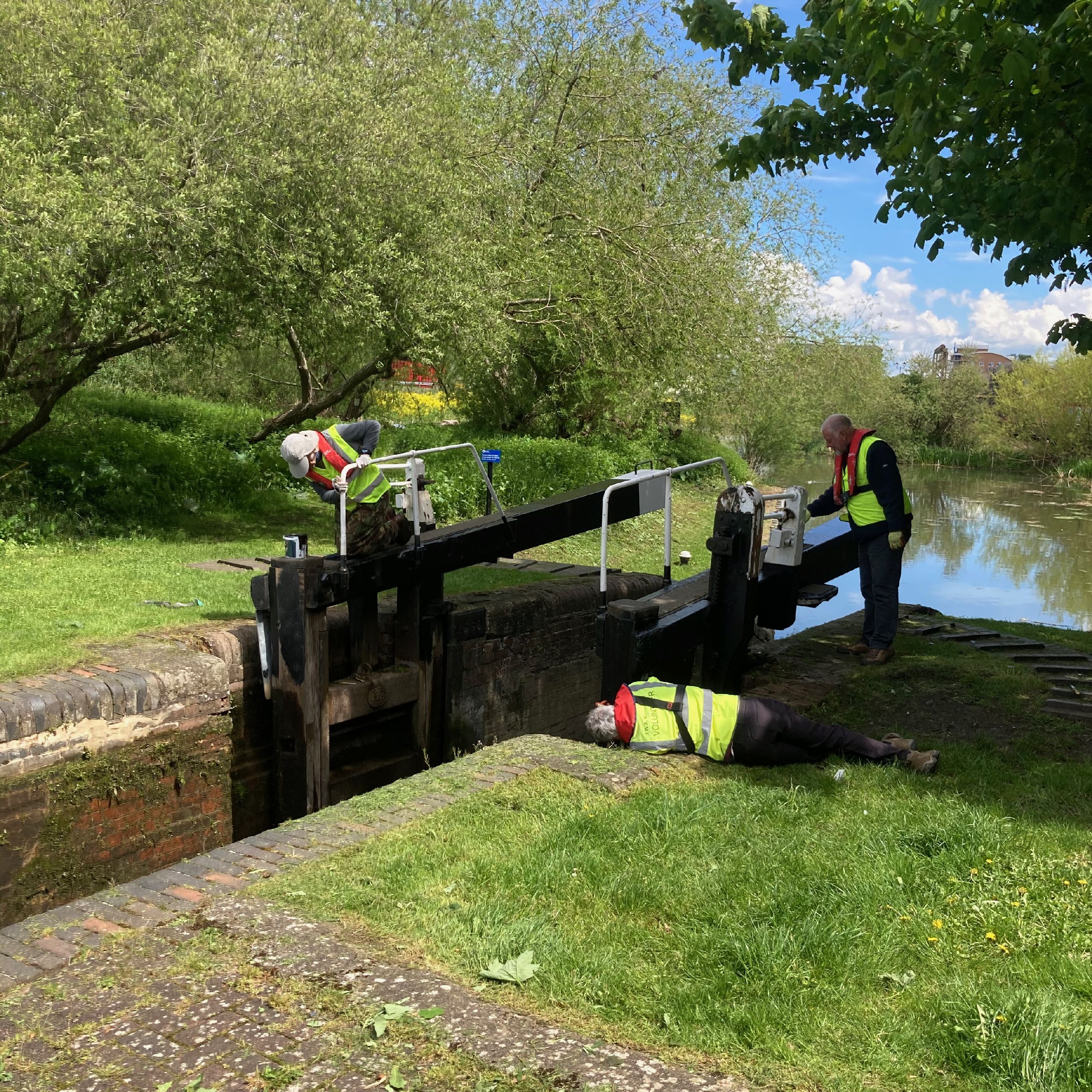
The 2024 Annual Restoration Conference, jointly organised by The Inland Waterways Association, Canal & River Trust and Buckingham Canal Society, is taking place on Saturday 13th April at the University of Northampton, Creative Hub.
This year’s Conference will focus on working in partnership and maintaining positive relationships with a broad range of people from landowners, local authorities, navigation authorities, community groups and volunteering bureaus, waterway and towpath users, which can be crucial given the current funding restraints.
A strong focus throughout the day will be given to environmental challenges in waterways restoration. With Eoin Harris looking at the key environmental drivers relating to restoration; a series of workshops will focus on diversifying and supporting a wider bank of volunteers, on campaign and membership management within a small team, and on management of traditional hard skills in restoration. Temporary works will be discussed, and the final session will look at some of the key points to consider and navigate in succession planning in restoration.
There will be plenty of time over lunch for networking and for learning more about the Fund Britain’s Waterways campaign and their many upcoming events along with various demonstrations from other speakers and organisations.
After lunch, a 30-minute walk, organised by IWA Northampton Branch, will offer the chance to explore the river Nene, which runs alongside the university campus, passing through Becket’s Park, to the Town Lock and Northampton Marina. See the location map.
The conference is a must for anyone involved in Waterway Restoration and volunteering and a prime opportunity to network and have in depth discussions with experts across the field.
The conference will run from 10am-3.30pm, and this year the registration fee is £10 which will help us cover the rising costs toward the conference.
Bookings closed on 4th April. However, if you wish to attend the Conference please email [email protected]. We will do our best to accommodate your request.
Any questions you may have, please email [email protected] or call 01494 783 453 Ext 607.
The agenda for the conference, the delegate pack and speaker briefs are now available.
Restoration
Waterway Restoration Conference 2024
The 2024 Annual Restoration Conference, jointly organised by The Inland Waterways Association, Canal & River Trust and Buckingham Canal Society, is taking place on Saturday 13th April at the University of Northampton, Creative Hub.
This year’s Conference will focus on working in partnership and maintaining positive relationships with a broad range of people from landowners, local authorities, navigation authorities, community groups and volunteering bureaus, waterway and towpath users, which can be crucial given the current funding restraints.
A strong focus throughout the day will be given to environmental challenges in waterways restoration. With Eoin Harris looking at the key environmental drivers relating to restoration; a series of workshops will focus on diversifying and supporting a wider bank of volunteers, on campaign and membership management within a small team, and on management of traditional hard skills in restoration. Temporary works will be discussed, and the final session will look at some of the key points to consider and navigate in succession planning in restoration.
There will be plenty of time over lunch for networking and for learning more about the Fund Britain’s Waterways campaign and their many upcoming events along with various demonstrations from other speakers and organisations.
After lunch, a 30-minute walk, organised by IWA Northampton Branch, will offer the chance to explore the river Nene, which runs alongside the university campus, passing through Becket’s Park, to the Town Lock and Northampton Marina. See the location map.
The conference is a must for anyone involved in Waterway Restoration and volunteering and a prime opportunity to network and have in depth discussions with experts across the field.
The conference will run from 10am-3.30pm, and this year the registration fee is £10 which will help us cover the rising costs toward the conference.
Bookings closed on 4th April. However, if you wish to attend the Conference please email [email protected]. We will do our best to accommodate your request.
Any questions you may have, please email [email protected] or call 01494 783 453 Ext 607.
The agenda for the conference, the delegate pack and speaker briefs are now available.












